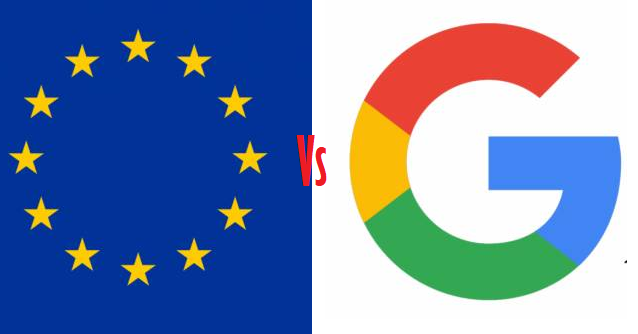The European Union has launched an antitrust investigation into Google’s vast advertising business, claiming that the company may have disadvantaged rival services, making it harder for brands to reach consumers and for publishers to fund their content. John Story, VP and Deputy Counsel of Acoustic, explains why the probe will be a watershed moment for understanding how the biggest markets may seek to curb the dominance of Big Data.
The impact of Big Data on fair market competition is– in my mind – the most interesting issue in the technology world right now and the eventual outcome of the EU’s competition/antitrust probe into Google’s advertising business will be a watershed moment for understanding how the biggest markets may seek to curb the dominance of Big Data.
It is important to emphasise this is no indication of wrongdoing on Google’s behalf. Rather, it is an opportunity for the EU Commission – with Google’s cooperation – to investigate whether the obvious potential for market abuse has arisen in reality, and if so, to what degree.
On the one hand, it raises the question of monopoly: has Google’s dominance created the scenario where its unassailably ‘perfect’ data and dominance of at each level of the adtech supply chain affords it the ability to distort fair competition? On the other, to what extent do regulators want to shackle Google’s technological innovation and the disadvantage those businesses, big and small, for whom Google’s adtech stack drives tremendous value?
Google has built the online advertising industry as we know it, and the platforms it runs on. Therefore, Google’s scale may well afford it an unassailable (Google might say deservedly unassailable) position compared to smaller players. The important question is not whether Google benefits from this dominance, it is whether Google is deliberately leveraging this dominant position to make it difficult for smaller players to compete. This is something that the Commission will look to investigate.
In addition, if – as planned (though now delayed) – Google starts blocking third party tracking on Chrome and Android, but allows itself to track users, you would have to say that “one rule for you, one rule for us” scenario is unfair. However, this is not an issue unique to Google. Apple’s recent OS updates require opt-in consent to third party tracking while not applying the same rules to Apple itself. Facebook argued that this was an anti-competitive step, but Apple justified the move on the basis that it improves user privacy. It will be very interesting to see how the EU Commission assesses the fairness of this (albeit that, perhaps conveniently, the delay until 2023 should mean that the investigation is concluded before Google implements this).
Ultimately, this is the strongest indication yet that regulators are not purely viewing data as a privacy issue. The vastness and richness of data accumulated by the biggest players gives Big Data a huge economic advantage and competition regulators are sending a clear warning to Big Data that they deem data dominance to be an antitrust issue and that they will not tolerate data being leveraged in a manner that unfairly distorts markets.
By John Story
VP and Deputy Counsel
Acoustic

